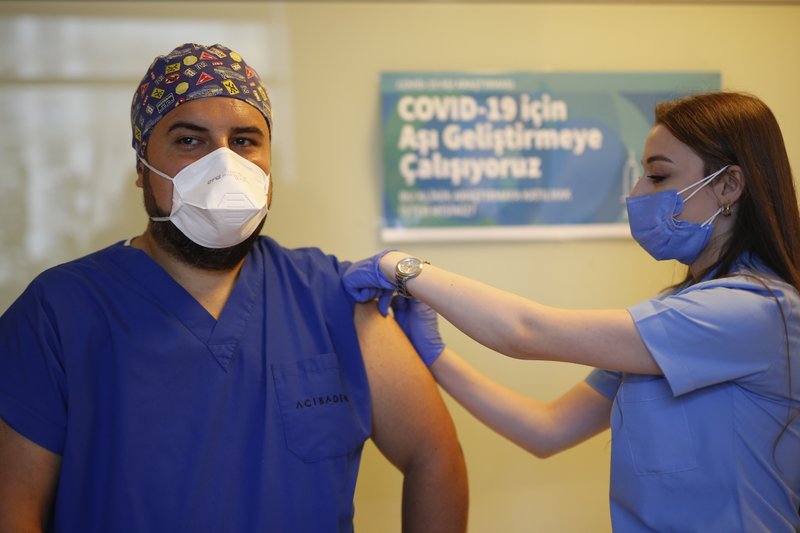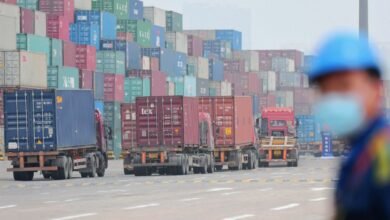
ISTANBUL (AP) — Turkey’s health minister has announced a vaccination plan starting with an experimental “inactivated vaccine” later this month to combat the COVID-19 pandemic amid a surge in infections and deaths.
Fahrettin Koca had previously announced an agreement with Chinese biopharmaceutical company Sinovac Biotech for 50 million doses of CoronaVac, which is currently in Phase 3 trials. Koca said in a statement late Wednesday that the first shipment of the inactivated vaccine will arrive in Turkey after December 11.
Inactivated vaccines are made by growing the whole virus in a lab and then killing it. Safely brewing and then killing the virus can take longer than newer technologies. But inactivated vaccines give the body a sneak peek at the germ itself rather than just the single spike protein, which mediates the entry of the coronavirus.
The minister said early use authorization would be granted after Turkish labs confirm vaccine safety and initial results from Phase 3 trials are assessed.
“If developments continue positively as we expect, Turkey would be among the first countries in the world to begin vaccinations in the early phase,” Koca said.
In November, The Lancet published a study about the efficacy of Sinovac’s vaccine candidate based on initial Phase 1 and Phase 2 clinical trials. The study said the efficacy was determined to be moderate, and that the vaccine produced lower levels of antibodies than those that have been found in recovered COVID-19 patients.
“The protective efficacy of CoronaVac remains to be determined,” the study said.
Candidates from Pfizer-BioNTech and Moderna have said that they have more than 90 percent efficacy rates. The UK’s AstraZeneca have an efficacy rate of 70-90 percent, again based on limited clinical trials.
Vaccination efforts would be rolled out in four stages, the minister said. The first group includes health care workers, citizens above age 65, and people living in homes for the elderly, disabled or other protective care homes.
Next would be essential workers and people above 50 with at least one chronic disease. Third, people younger than 50 with at least one chronic illness, young adults and other workers would be vaccinated. The fourth and final phase would be for the rest of the population.
The CoronaVac will be delivered in two doses per person.
Turkish President Recep Tayyip Erdogan said Monday the vaccine would be administered free of charge. Other COVID-19 vaccines would be sold at pharmacies, according to the health minister.
“We will take delivery of at least 10 million doses of the vaccine in December and likely 20 million. Another 20 million doses in January and 10 million in February,” Koca said earlier this week. Turkey’s population is more than 83 million.
Koca had previously announced an agreement for 1 million doses of the Pfizer-BioNTech vaccine to be delivered in December. He said Wednesday that negotiations were ongoing for more vaccines that introduce a so-called messenger RNA, or mRNA, sequence coded for a disease specific antigen, which prompts the body to have an immune response.
RNA vaccines work by introducing an mRNA sequence (the molecule which tells cells what to build) which is coded for a disease specific antigen, once produced within the body, the antigen is recognized by the immune system, preparing it to fight the real thing.”
Turkey was included in the trial phases of both vaccines and is also developing a local vaccine. Vaccine trials usually take years but have been drastically sped-up in wake of the global pandemic.
Turkey has reported record fatalities for 10 consecutive days, with 193 new deaths Wednesday, bringing the total death toll in the country to 14,129.
The daily number of infections has also hit a record high of 31,923, as Turkey resumed reporting all positive cases last week after four months of only releasing the numbers of symptomatic patients. The new daily infection numbers put Turkey among the worst-hit in the world.




